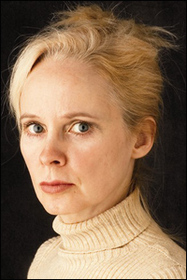The traditional model of publishing–for books, at least–has become a large(ish) upfront advance, followed by royalties: a small percent of the book’s sale, once the book has earned enough to pay off the advance. Here’s a counteroffer: as an author, would you trade a larger advance for a smaller payment upfront PLUS a bigger slice of the proceeds?
That’s the new model of payment companies like Byliner and The Atavist are trying out. Reports The New York Observer:
Like most magazines, The Atavist pays a fee up front when a story arrives in decent shape. Mr. Dobbs called The Atavist’s fee “modest” when compared to the top-tier magazines. “It’s less than you would get either by word rate or total fee rate – unless you’re Michael Lewis,” he said. The big difference is that when the issue comes out, the writer gets roughly half the revenue the story generates. Which means a runaway hit by a mid-level writer, or even a run-of-the-mill piece by a marquee author, has the potential to rack up thousands, or in an extreme case, hundreds of thousands, in revenue for both the publication and the author.
“We give basically an even split with our authors,” said Evan Ratliff, co-founder and editor at The Atavist. “It’s not always that but give or take it’s usually around 50 percent.” Writers take on greater risk if the story fails, but also reap greater awards if it succeeds.
And many of those pieces have been succeeding. The Columbia Journalism Review notes:
While Kindle is strict about disclosing sales figures or letting publishers like Byliner disclose figures, plenty of Singles have been doing well. The Krakauer Single—a best-seller for all of Amazon, digital and print, was downloaded for free seventy thousand times in the seventy-two hours after it was first released, before Kindle started charging for downloads, and Bryant says they sold a number comparable to that immediately thereafter. Sarah Gelman, an Amazon spokeswoman, says seven Kindle Singles titles—including Krakauer’s— have broken into the top twenty bestselling titles in the Kindle store, which includes all Kindle books. Twenty-one of the seventy-five Kindle Singles published so far have been in the top one hundred Kindle best-sellers.
So far, this model has been applied mostly to long-form nonfiction pieces. Could this model work for novels or short story collections? Would you make the smaller-advance/larger-royalty tradeoff, and why (or why not)?
Further Reading:
- The problem with Audrey Niffenegger’s $5 million advance for Her Fearful Symmetry
- How do writers typically get paid? Here’s one breakdown.
- Author Lynn Viehl analyzes her royalty statement for her New York Times bestseller–and comes to a sobering conclusion.






